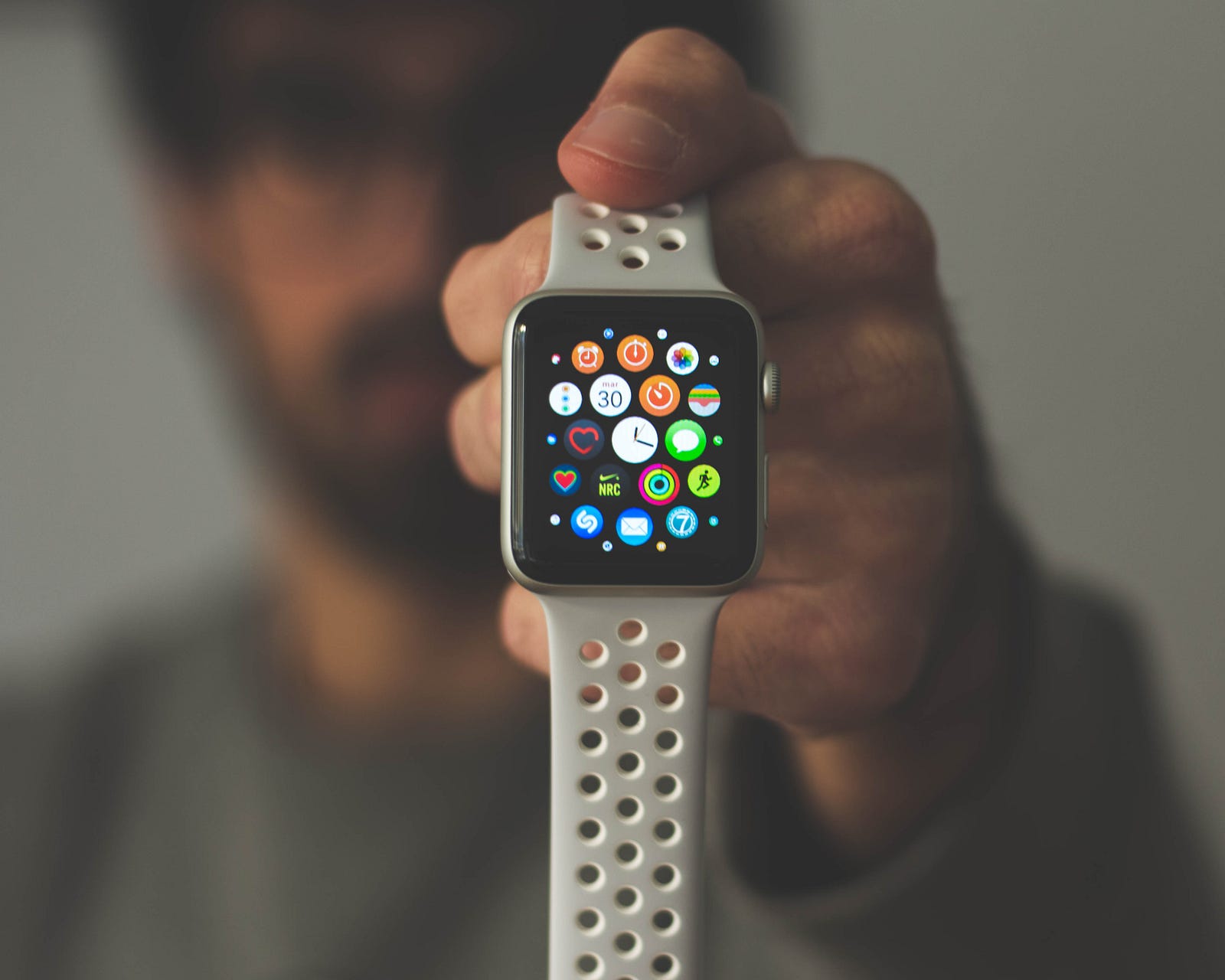SLEEP TRACKERS ARE POPULAR GADGETS for those seeking insights into their nightly slumber. But there is a nuanced reality that emphasizes both the potential benefits and cautionary tales associated with relying on such devices. Today, focus on using your sleep tracker.
Sleep tracking devices promise a window into the mysterious world of sleep, offering data on sleep duration, cycles, and even the elusive quality of rest.
My patients often are distressed about a sleep variable their tracker has noted. Sometimes, it’s the amount of deep sleep; other times, it’s not enough REM sleep.
But what should you pay attention to in your sleep-tracking data? Do we have good evidence that that sleep score is meaningful? You will be surprised.
Promise and Perils of Sleep Tracker Data
At first glance, the allure of sleep trackers is undeniable. Armed with various sensors, these devices collect a wealth of data as you sleep peacefully (or restlessly).
I am a data geek. But frugal: I use a simple Google Fitbit Luxe device. Under US $100.
What do I get in return? The promise is a comprehensive snapshot of my night, from heart rate to movement patterns.
But here’s the catch: while my tracker offers valuable information, the data can be misleading.

Sleep Trackers Can Be Misleading
Understanding sleep data requires more than a cursory glance at the numbers. Interpreting sleep tracker data is akin to deciphering a secret language.
And there be less there than you think.
The metrics provided, such as sleep duration and efficiency, may only tell part of the story.
First, a single numerical value cannot fully encapsulate the complexity of sleep, influenced by factors like sleep architecture and individual differences.
Sleep Trackers Do Basics Well
Scientists offer that the newest sleep trackers are good at figuring out whether someone is asleep or awake.
However, these trackers might not be as reliable for people who are obese, have heart rhythm issues like atrial fibrillation, or have darker skin tones.
Skin color can mess with how the tracker sees the light reflected from it, making the measurements less accurate in these cases.
Sleep Stages
Sleep trackers measure a key factor called sleep stages, the different sleep phases you go through at night.
There are four stages: Stage 1 (when you’re just falling asleep), Stage 2 (light sleep), Stage 3 (deep sleep), and REM sleep. Your time in each stage influences your sleep quality and overall health.
Deep sleep is crucial for restoring your body, repairing cells, releasing hormones, boosting the immune system, and clearing the brain of toxins. REM sleep, on the other hand, is important for memory and emotional processing.
Accuracy of Tracking Sleep Stages
Your sleep tracker shows the percentage of time you spend in each stage and compares it to a target (though this varies for individuals).
Generally, people spend about 75 percent of their sleep in non-REM stages and 25 percent in REM sleep.
However, the specific time in each stage varies based on your genetics. If you feel well-rested, it likely means you’ve spent enough time in each sleep stage.
A study of four devices led researchers to conclude this:
High variability in sleep stage-tracking performance suggests that these devices are best used for tracking sleep-wake outcomes, not sleep stages.
In conclusion, even though many trackers provide information about sleep stages, these stages are determined by changing patterns of brain activity. Most devices, however, cannot directly measure this brain activity.
Heart Rate Variability (HRV)
Heart rate variability refers to the subtle changes in the time intervals between successive heartbeats.
These minute variations, measured in fractions of a second, are typically imperceptible without specialized monitoring devices.

Although individuals in good health may exhibit some degree of heart rate variability, its presence can serve as a potential indicator of underlying health issues.
Such conditions include ones related to the cardiovascular system as well as mental health concerns such as anxiety and depression.
Is Heart Rate Variability Your Body’s Morse Code of Health?
IS HEART RATE VARIABILITY (HRV) YOUR body’s Morse code of health, silently sending messages about your wellness?medium.com
Accuracy of Measuring Heart Rate Variability (HRV)
Smartwatch-derived heart rate variability measurements offer a practical alternative to EKG-based strategies, according to a 2023 study in the European Health Journal — Digital Health.
The researchers indicate, however, that we should use caution with HRV markers that predominantly assess short-term variability.
The Mirage of a Cure: Sleep Trackers and Insomnia
One of the key misconceptions surrounding sleep trackers is their role as a panacea for sleep disorders, particularly insomnia.
Owning a sleep tracker doesn’t equate to a cure for insomnia.
While these devices can raise awareness about sleep patterns, we should view them as something other than a standalone solution for complex sleep issues.
Some users may find themselves caught in a paradox: the anxiety of tracking sleep can exacerbate insomnia rather than alleviate it.
Constantly scrutinizing sleep metrics may contribute to heightened awareness, making it harder for individuals to relax and drift into a restful slumber.
Making Sense of Your Sleep Tracker
Understanding the capabilities and limitations of sleep trackers is crucial for making informed decisions about their use.
Sleep trackers excel at providing general trends and patterns over time. They can be valuable tools for identifying consistent sleep deficiencies or irregularities.
Just don’t assume that they are great at everything. I use my sleep tracker to follow the basics, including sleeping time. I also track my sleep time and wake time consistently.

However, it’s essential to acknowledge the technology’s constraints.
Tips for Maximizing the Benefits of Sleep Trackers
So, how can one navigate the world of sleep trackers without falling into the pitfalls? Here are some practical tips for maximizing the benefits while mitigating potential drawbacks:
- Context is Key: Understand that sleep metrics are part of a larger puzzle. When interpreting the data, consider lifestyle factors, stress levels, and overall well-being.
- Consistency Matters: Use the sleep tracker consistently over an extended period to identify patterns and trends. A single night’s data might not provide a comprehensive picture.
- Mindful Tracking: Be mindful of the psychological impact of tracking. If anxiety or obsession arises, take breaks from monitoring to maintain a healthy relationship with sleep.
- Supplement with Professional Guidance: Consult a healthcare professional or sleep specialist if sleep concerns persist. A comprehensive assessment goes beyond what consumer-grade trackers can offer.
Conclusion: Using Your Sleep Tracker
In the realm of sleep trackers, the key lies in understanding their role as informative tools rather than definitive solutions.
As users, we must approach these gadgets discerningly, acknowledging their capabilities and limitations. I stick with the most basic functions, including time asleep and consistency in my sleep and awakening times.
Sleep trackers offer a glimpse into the nocturnal world.
Still, the true art lies in interpreting their data with nuance, embracing the complexity of sleep, and recognizing that a good night’s rest involves more than just numbers on a screen.
The way sleep trackers help me most? They remind me to focus on optimizing my sleep hygiene.
Thank you for reading “Using Your Sleep Tracker.”




